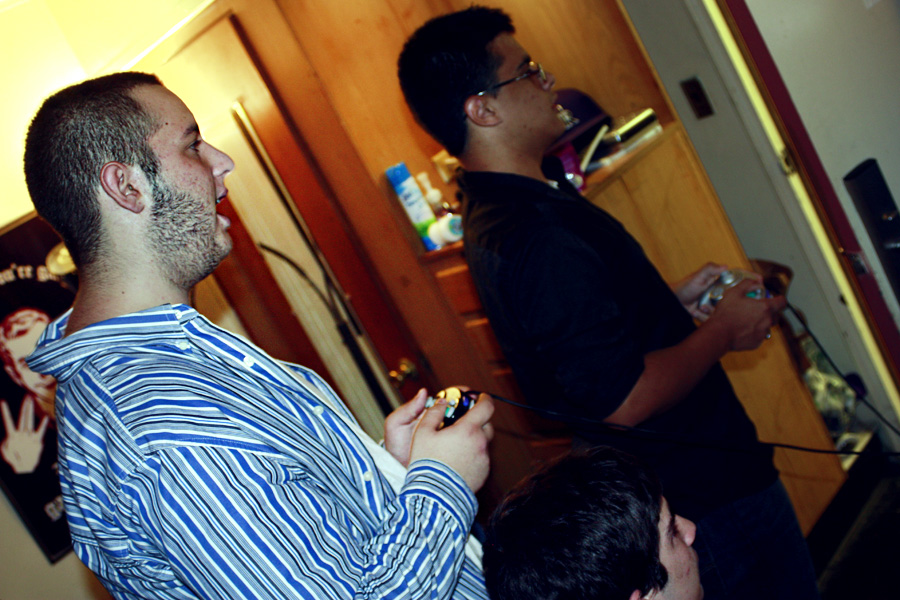

The U.S. Supreme Court will decide in October whether laws in California, Illinois and five other states banning the sale and rental of violent video games to minors violate constitutional free-speech rights. Although the decision will not affect New York, New Paltz residents and local game vendors have been paying attention.
The law, which was initially passed by California Gov. Arnold Schwarzenegger in 2005 and was struck down by a U.S. appeals court, imposes new video game labeling requirements which are currently managed by the Entertainment Software Rating Board (ESRB). The ESRB is a non-profit, self-regulatory body that independently enforces advertising guidelines and assigns ratings ranging from “Early Childhood” to “Adults Only,” which requires the purchaser to be at least 18 years old.
If the law in question were to pass in California, publishers of games would be required to go beyond the ESRB rating system and create their own separate rating. That would entail an 18-inch label located on the game’s box describing the mature content in detail. The law would also ban the sale of mature video games to anyone under the age of 18 and calls for a fine of $1,000 to any vendor or person who rents or sells to a minor.
Mitch James, assistant store manager of a Gamestop video game shop in Poughkeepsie, N.Y., said he doesn’t know much about the law but felt that if it passed, it could either hurt or help the video game industry as a whole.
“If we have to follow a whole bunch of different rating systems and different publishers have different systems to follow, it could be good or it could be bad,” he said. “I just don’t understand how they’re going to mandate what the publisher has to deem mature content.”
If the legislation passed, a video game would be classified as violent if “the range of options available to the player includes killing, maiming, dismemberment or sexually assaulting an image of a human being.” According to the bill, a game falls under the law if “a reasonable person, considering the game as a whole, would find it appeals to a deviant or morbid interest of minors… it is patently offensive to prevailing standards in the community as to what is suitable for minors… or it causes the game, as a whole, to lack serious literary, artistic, political or scientific value for minors.”
James said despite the current rating system that is available, 95 percent of parents visiting his Gamestop with their children will purchase the mature-rated game.
“We have to reiterate the policy every time a parent comes in with their child,” he said. “We let them know the rating, but most of the time they don’t listen or they don’t even care. If the law passes, I think parents will definitely still be buying their kids these games.”
Lauren Coluccio, a fourth-year Spanish major and vice president of the gaming society at the State University of New York at New Paltz, said the issue of children playing mature video games is something she has had experiences with. She said her parents have restricted her 14-year-old brother from playing the game “Grand Theft Auto.”
Coluccio said, despite the fact that children have the ability to expose themselves to violence in the media if they start flipping through television channels, mature video games should still be restricted to this age group.
“I think a bigger issue is the themes that come with violence in some of these video games, which might include sex, suggestive language, drug references, etc,” she said. “We’re talking about minors and whether they are allowed to be exposed to violence and other adult themes. [This] should be completely at the discretion of their parents.”
When the legality of this bill is decided on next month, it will be the first ever ruling on a video game case by the Supreme Court.
James said if the law does pass, the video game industry probably wouldn’t change and would still maintain its current high customer numbers.
“I don’t think it will have any effect on people producing games, the content they put in games or the sales,” he said. “Just because the boxes have a different description, I don’t think it will deter anybody who is already buying these games.”
